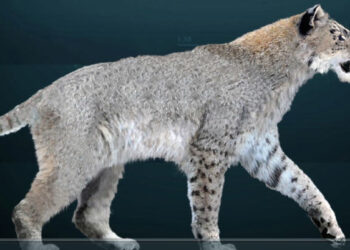January 1, 2024
2 min read
Scientists discover why fathers usually don’t pass on their mitochondria’s genome
Kateryna Kon/Science Source
Almost every human cell is powered by mitochondria, bean-shaped organelles that use oxygen to synthesize usable energy. These structures evolved billions of years ago from free-swimming bacteria that were engulfed by some of humanity’s earliest ancestors. Because of this history, mitochondria still have their own ring-shaped DNA—completely separate from the 23 chromosomes that make up most of the human genome. And although those chromosomes come from both parents, nearly all humans inherit their mitochondrial DNA (mtDNA) from their mother’s egg cell.
So what happens to the mtDNA in the sperm cell? Understanding this process is important for studying mitochondrial diseases, genetic disorders that result when these “powerhouses” don’t function properly. Scientists know that molecular processes break down the sperm’s mitochondria soon after fertilization in other animals—but no one has been able to pinpoint when this elimination happens in humans.
Now biologists have discovered that it happens early—in fact, human sperm’s few mitochondria contain virtually no DNA at all. The findings were published in a recent issue of Nature Genetics. “We were very surprised by the absence of mtDNA in mature human sperm” because previous studies had produced conflicting results, says the study’s senior author, molecular biologist Dmitry Temiakov of Thomas Jefferson University in Philadelphia. This mtDNA-elimination process might play a role in human infertility and can help science understand mitochondrial diseases, he says.
On supporting science journalism
If you’re enjoying this article, consider supporting our award-winning journalism by subscribing. By purchasing a subscription you are helping to ensure the future of impactful stories about the discoveries and ideas shaping our world today.
Using molecular…
Read the full article here







